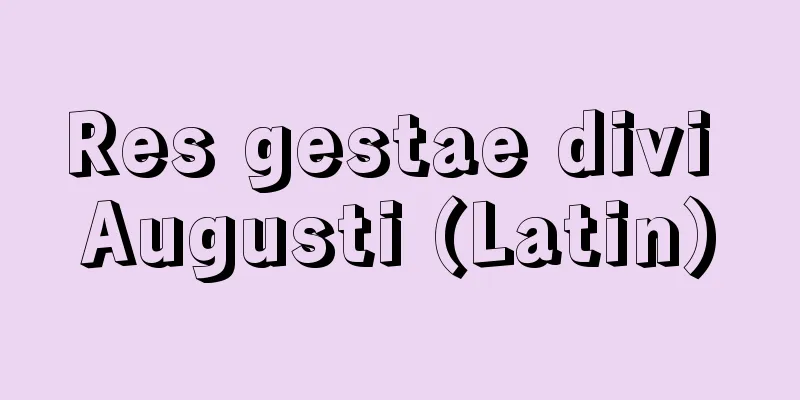"Kagamiyama Manuscript" - A commentary by Kagamiyama Sato

|
… [Yuichi Takazawa] From the old Kagamiyama woodblock print...First performed at the Edo Satsuma-za Theatre in January 1782 (Tenmei 2). The story is based on a true story that on April 3, 1724 (Kyoho 9), at Matsudaira Suo-no-kami's residence, concubine Michi accidentally put on the wrong sandals for Tsubone Sawano, resulting in Sawano insulting her. Feeling ashamed, she committed suicide, and Michi's maid Satsuma stabbed Sawano to avenge her master. The play is adapted from the kabuki play Kagamiyama Sato no Kikigaki (written by Nakagawa Kamesuke, 1780 at Osaka Fujikawa-za) and includes the plot of the Kaga Uprising. Osugi Genzo, a vassal of Kanrei Ashikaga Mochiuji, plots to embezzle from the family and persuades Hatasuke, the younger brother of loyal retainer Kanzaki Shuzen, to kill Mochiuji at the Sagami River. ... From [Kagamiyama Re-Iwafuji]...The subject is the Kaga Uprising, and is a sequel to Kokyo no Nishikie. It is a revised and adapted version of Yayoi no Hanaoe Do no Irifune (A Boat Entering Oedo with Cherry Blossoms) (by Tsuruya Nanboku 5th, March 1837) and Kagamiyama Sato no Kikigaki (A Manuscript of the Red Light District of Kagamiyama) (by Nagawa Kamesuke, 1780). Oyanagi, who became a concubine of the lord of Taga, calls her lover Mochizuki Danjo her brother, and the two of them plot to usurp the family. ... From [Nakagawa Kamesuke]He studied under the first Namiki Shōzō and began writing plays, making his first appearance in a medium-sized play in 1771 (Meiwa 8). For about 15 years from Shōzō's death in 1773 (An'ei 2), he wrote over 40 Kyogen plays, mainly as a stand-up playwright for medium-sized plays. He excelled in period pieces, and five of them, "The Tale of Ise" (1775), "The Iga-goe Ride and Raincoat" (1776), "Meiboku: Sendai-hagi" (1777), "The Tale of Kagamiyama" (1780), and "The Tenka-jaya-mura" (The Tenka-jaya-mura, 1781), all enjoyed huge success, with "Iga-goe" running for 145 days, an unprecedented success, and were repeatedly performed after their premieres. Kamesuke, who was able to write purely Kabuki-kyogen plays, is considered the ancestor of Middle Age Kabuki composers. *Some of the terminology used in reference to the "Kagamiyamakakushi Manuscript" is listed below. Source | Heibonsha World Encyclopedia 2nd Edition | Information |
|
…【高沢 裕一】 【加賀見山旧錦絵】より…1782年(天明2)1月江戸薩摩座初演。題材は1724年(享保9)4月3日,松平周防守の屋敷で側女みちが誤って局(つぼね)沢野の草履をはき違えたことから沢野に侮辱を与えられ,これを恥じて自害したので,みちの下女さつは沢野を刺して主人の恨みをはらしたという実説を中心に,歌舞伎《加賀見山廓写本(かがみやまさとのききがき)》(奈河亀輔作,1780年大坂藤川座)から加賀騒動の筋をあわせて脚色した作品である。管領足利持氏の臣大杉源蔵はお家横領を謀り,忠臣神崎主膳の弟畑介をそそのかし相模川で持氏を討たせる。… 【加賀見山再岩藤】より…題材は加賀騒動で《加賀見山旧錦絵(こきようのにしきえ)》の後日譚。《桜花大江戸入船(やよいのはなおえどのいりふね)》(5世鶴屋南北作,1837年3月),《加賀見山廓写本(かがみやまさとのききがき)》(奈河亀輔作,1780)等を改訂脚色したもの。多賀の大領の側室となったお柳の方は情夫望月弾正を兄と称し,二人してお家横領を企てた。… 【奈河亀輔】より…初世並木正三に師事して劇作を始め,1771年(明和8)初めて中の芝居に名を出し,正三の没した73年(安永2)から約15年間,おもに中の芝居の立作者として40余編の狂言の筆を執った。時代物にすぐれ,なかでも《競(はでくらべ)伊勢物語》(1775),《伊賀越乗掛合羽》(1776),《伽羅(めいぼく)先代萩》(1777),《加賀見山廓写本(さとのききがき)》(1780),《殿下茶屋聚(てんがぢややむら)》(《敵討天下茶屋聚》1781)の5編は《伊賀越》が145日打ち通すという古今まれな大当りをとったのを筆頭にいずれも大入り大当りをとり,初演以後も繰り返し上演された。純然たる歌舞伎狂言を書きえた亀輔は中古歌舞伎作者の祖とされる。… ※「《加賀見山廓写本》」について言及している用語解説の一部を掲載しています。 出典|株式会社平凡社世界大百科事典 第2版について | 情報 |
<<: Kagamiyama Nishiki Maple Leaves
Recommend
Edo Famous Places Illustrated
A pictorial guide to famous places in Edo and its...
Ibn al-Baitar
…The solitary mystic Ibn al-'Arabi wrote the ...
Returning - Returning
...It is called "Tonbo o gaeru (turning the ...
Colza
...In North America and Europe, the seeds are use...
Inti (English spelling)
It means sun in Quechua. In the religion of the In...
Kaibutsu Seimu - Kaibutsu Seimu
Developing human knowledge and completing the unde...
Saionji family
The Kan'in line of the Northern branch of the...
Ubuishi - Ubuishi
…The tray is topped with pebbles brought from the...
Phoca groenlandica; harp seal
Order Carnivora, Suborder Pinnipedia, Family Phoci...
Complete metamorphosis
A type of metamorphosis in insects, in which a lar...
Professor
…He became a teacher in Egypt and made his litera...
Camp, WC (English spelling) CampWC
…Unlike the traditional football style, in which ...
Alpinia sanderae (English spelling) Alpiniasanderae
…[Ichiro Sakanashi]. … *Some of the terminology t...
Travels to Song China
A travelogue from the late Heian period. 1 volume....
Commerce - shogyo (English spelling) commerce
A general term for economic activities related to...





![Owase [city] - Owase](/upload/images/67cb24f25a352.webp)



